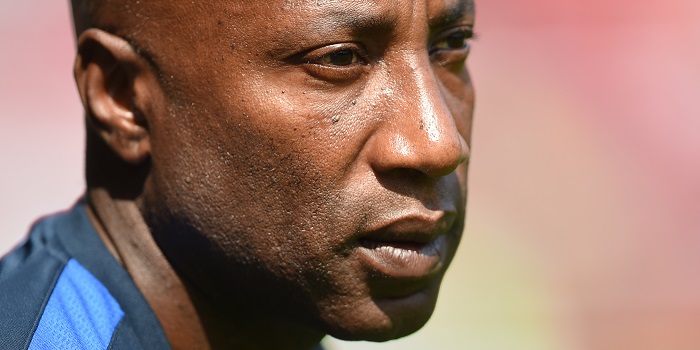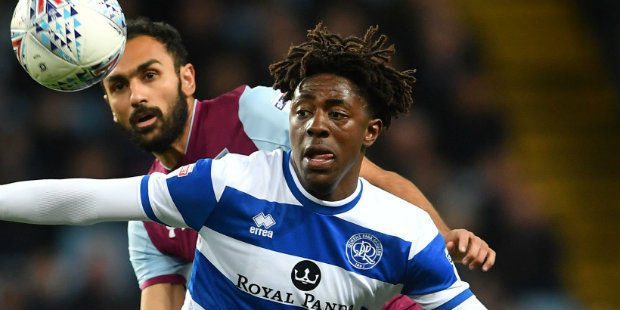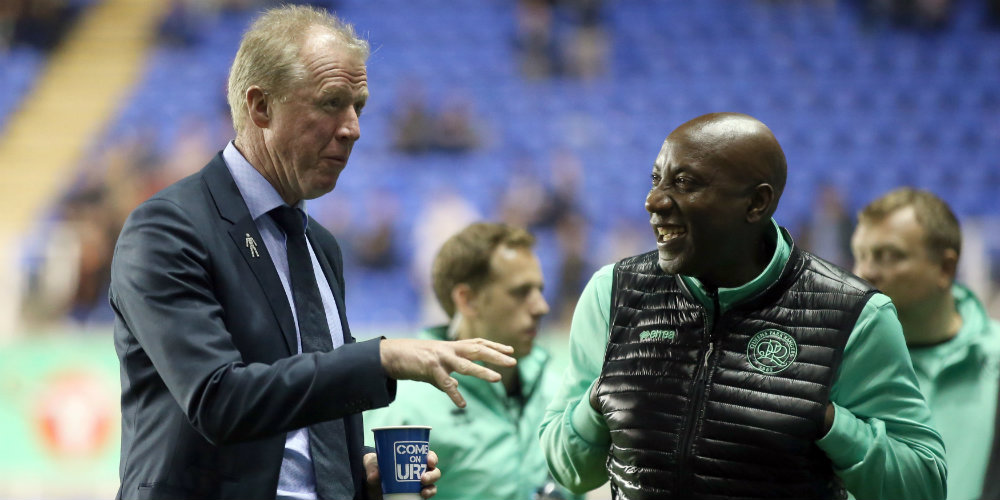Ramsey prepared to keep ‘kissing frogs’ in QPR’s last-chance saloon

Chris Ramsey is ready for another crack at management should a chance come his way.
And Ramsey’s current job at QPR is all about second chances – “last-chance-saloon signings” as he and Les Ferdinand call them.
Ramsey has a triple role, combining the jobs of technical director and head of coaching while also working with the first team.
Initially brought in by Rangers director of football Ferdinand, who worked with him at Tottenham, as academy chief, Ramsey ended up as head coach following the departure of Harry Redknapp in 2015.
After a troubled spell in the top job, Ramsey returned to Loftus Road as technical director, largely responsible for delivering Ferdinand’s vision of a return to QPR successfully developing players.
Ebere Eze is a prime example of what Rangers are looking to achieve, having been picked up in 2016 after being released by Millwall.
The likes of Aramide Oteh and Charlie Owens have been brought in after failing to make the grade at Tottenham.
Forward Chay Tilt, who was previously at West Brom, has impressed at Under-23 level.
So too has Deshane Dalling, who failed to make an impact at Huddersfield after being spotted playing for non-League Staines Town.
Joe Felix, released by Fulham, and Ben Wells, who was at West Ham, are among the others given another chance by Rangers.

“We’re looking for players who have maybe been let go by other clubs and are perhaps late developers,” Ramsey explains.
“They’re what Les and I call ‘last-chance-saloon signings’. It’s an opportunity for them.
“The focus has been on bringing in these type of players and developing those already in our academy set-up.
“The owners have always wanted what’s best for QPR but I think it took Les to persuade them to go down this developmental route.
“Les really felt it was something they needed to do for the future of the club.
“He’s been prepared to stick with it and take a long-term approach even though he’s got a fair bit of flak at times while results in the short term have not always been good.
“He’s passionate about the club and strongly believes it’s the direction we need to go. But it takes time to see the benefits.”
Kissing frogs
Some benefits are beginning to become apparent, but Ramsey is realistic. In the search for the odd gem, many players will fall by the wayside.
“We have that development path and more and more players and agents are aware of this and want to get into QPR,” Ramsey says.
“What they need to be aware of though is that, while we have a very talented coaching staff here, there are no magic wands.
“The recruitment really is key and you can pick up good players, but I suppose in a sense you have to kiss a lot of frogs as well.
“We’d be naive to say we can go and pick up players like Ruben Loftus-Cheek at the age of 16. We’re working in a different market.”
The triple role
Already submerged in QPR’s attempt to rebalance the books and change direction in the aftermath of huge overspending and the realities of Financial Fair Play, circumstances led to Ramsey’s remit then increasing further.
First there was the departure of Simon Ireland, who left his job as QPR’s head of coaching. Ramsey took on that title in addition to the technical director role.
And when Curtis Fleming, part of the then manager Ian Holloway’s coaching staff, left to return to his former club Middlesbrough, Ramsey stepped in to help with the first-team squad.
He has remained involved with the first team under Steve McClaren – something Ramsey believes has been possible largely because of Alex Carroll taking the role of academy director.
“Last year it was a bit crazy because the role was still evolving,” he says.
“First Simon Ireland left for Nottingham Forest and then Curtis Fleming went to Middlesbrough.
“Now I think the triple role will benefit the club because working with the first team dovetails well with my role in terms of making youngsters aware of what’s expected of them if they step up to the first team.
“My role really is to support Steve as manager as I did with Ollie for the four months last season.”

Ramsey’s own time as manager lasted six months – nine if you include his spell at the helm before he was given the job full-time.
He was fired after just nine wins nine in 32 matches – a record not bettered by his successor, Jimmy Floyd Hasselbaink, whose signings arguably did not compare as favourably either.
Ramsey, with some justification, points to the difficult time he managed in and the emergence of players such as Grant Hall and Massimo Luongo, who were brought in on his watch.
He would welcome another go at management.
“I think you have to want to. You’d owe it to yourself really,” he says.
“I don’t think I did a bad job in what were difficult circumstances at the time. It was a difficult time for the club.
“If the right opportunity came up again then I wouldn’t turn it down. You always want to test yourself.”
